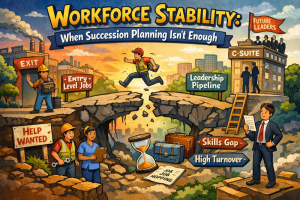Navigating the role of Chief Revenue Officer (CRO) in today’s efficiency-driven landscape is no small feat. With the average tenure of a CRO a mere 18 months, the window to drive impactful results is narrow.
The question then arises: amidst the torrent of responsibilities and ever-looming expectations, do you truly know your blind spots?
A Reality Check on CRO Roles:
It’s alarming yet unsurprising that a majority of CROs struggle with the multifaceted expectations heaped upon them.
A successful CRO is expected to:
- Seamlessly align sales and marketing, and ensure coherent cross-functional strategies
- Display prowess with every sales enablement, CRM, and marketing tool under the sun
- Extract actionable insights from limited data … truly becoming a veritable Sherlock in the realm of sales analytics
- Carve out and drive forward a visionary strategic plan.
Amidst these monumental tasks lies an even more precarious pitfall: what former defense secretary Donald Rumsfeld referred to as the ‘unk unks’, or the unknown unknowns.
The greatest danger isn’t in the challenges you anticipate, but in the obstacles that remain oblivious to you. Many CROs, in their earnest quest to stay on top of everything, stretch themselves too thin to focus on the things that matter most.
The Power of Leveraging Strengths
Over the past decade of working closely with leaders across the spectrum ranging from the Fortune 50 to startup firms, we’ve discerned a clear pattern. The most successful leaders aren’t necessarily the ones who try to tackle everything singlehandedly. Rather, they possess an astute awareness of their strengths and aren’t hesitant to seek external assistance when the situation demands it.
For a CRO, this can mean leveraging help from the outside for highly tactical items including:
- Deduplicating and cleaning data
- Developing intuitive dashboards, to ensure clear visibility of the revenue funnel
- Training the sales teams to make the best use of technology investments
These aren’t just mundane tasks to be ticked off a checklist. They form the very bedrock upon which a robust revenue strategy rests. Unfortunately, amidst the whirlwind of responsibilities, many CROs overlook these foundational aspects.
By allowing experts to handle specialized tasks, you unburden yourself from getting entrenched in the weeds. This affords you the brain space and energy to focus on the larger picture. And by doing so, CROs are empowered to prioritize building operational efficiency, forge deeper alignment within the organization, and chart out innovative revenue strategies.
But by acknowledging one’s blind spots, playing to innate strengths, and leveraging external expertise when needed, CROs can transcend these challenges and drive meaningful, lasting impact.
Remember, the journey to success isn’t about having all the answers – it is genuinely knowing where to find them.
Want to talk more about the role of today’s CROs and blind spots?
Our team would love to chat more about this topic – there’s a lot more we can share in terms of our insights and experiences! Be sure to connect with us: reach us via email at hello@thinkempirical.com, or give us a call (610) 994-1139.
This blog was penned by Ajay Joshi, ECS Revenue Operations Partner. Be sure to connect with Ajay on LinkedIn.



